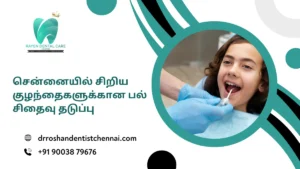A shocking news hits our ears recently which happened in 2023, eight patients in Tamil Nadu’s Vaniyambadi town died of a rare but deadly brain infection called neuromelioidosis. This infection, caused by a bacterium called Burkholderia pseudomallei, was traced back to a contaminated saline bottle in a dental clinic. According to the report, a non-sterile instrument (a periosteal elevator) was used to open the bottle, which was then improperly resealed and reused eventually infecting at least 10 people, eight of whom lost their lives.
Let’s know What Is Neuromelioidosis first?
Neuromelioidosis is a serious neurological infection that affects the brain and spinal cord. It is caused by the bacteria Burkholderia pseudomallei, which lives in soil and water, especially in tropical regions like India. The infection can cause:
- Fever
- Headaches
- Seizures
- Brain abscesses
- Cranial nerve problems (e.g., facial paralysis)
When it affects the brain, it can mimic other conditions like a stroke or tuberculosis, making diagnosis difficult and often delayed which is why prevention is critical.
What Went Wrong in the Clinic?
The report points to a basic lapse in sterilization:
- A periosteal elevator, which should only be used for surgical procedures, was used to open a sealed saline bottle.
- That bottle was then reused without proper sealing.
- This allowed bacteria from the instrument or air to contaminate the saline.
- Patients were likely exposed to the infection when that saline was used during dental procedures.
This is a heartbreaking example of how a small break in sterilization protocol can lead to disastrous consequences.
What We Do Differently at Rayen Dental Care Centre
At our clinic, we follow strict infection control protocols, including:
- Using only single-use consumables (like saline) for each patient
- Never reusing opened vials or bottles
- Sterilizing all surgical instruments in Class B autoclaves, ETO sterilizer
- Regularly training our staff on updated infection control guidelines
- Supervised by Infection control certified Nurse everyday
- Following NABH-recommended practices for clinical safety
- Usage of Sterilization indicators for each batch of instruments proceeding for sterilization and recorded regularly
- Sterilization resister maintanence to monitor the whole sterilization system
A Message to Our Patients
We are aware that reading about these kinds of events can be extremely unnerving. We want to reassure you that your safety is always guaranteed at our clinic because we are your go-to source for dental care. This tragedy serves as a reminder to all dental practitioners to maintain vigilance, adhere to procedures, and give sterilization top priority not merely as a matter of habit, but also as a moral duty to each and every patient who entrusts their health to us.
Final Thoughts
As medical professionals, we offer our sincere condolences to the families impacted by this preventable tragedy and lament the lives lost. We also reaffirm our commitment to never allowing such slip-ups in our work. Together, as patients and professionals, let’s establish a zero-compromise safety culture in all dental clinics throughout India.
Patient safety and infection control are our top priorities at Rayen Dental Care Centre. The dentistry and medical communities throughout India have been rocked by a recent terrible event that was highlighted by major publications and published in The Lancet. We must take note of this.






